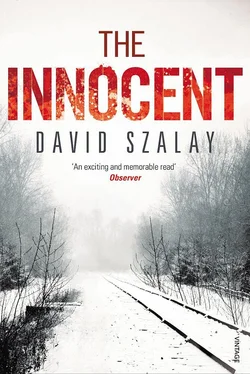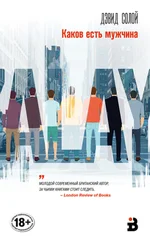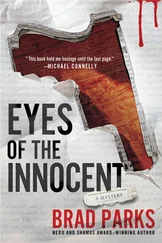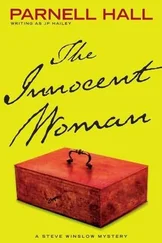You said that Sviderskaya had stolen things from you in the past, that things had vanished from the pockets of your coat. You said that she hated you, that she was jealous of you. That was what you said.
Her voice screaming in the stock room would have been audible to the women queuing in the shop, steaming in their oilskin coats. (And there were many more of them queuing outside, as I saw myself when I went there later. A shipment of shoes had arrived that morning, and word had spread through the city.) ‘She never does any work! What does she get paid for? Why is she here?’ I knew the sort of thing Sviderskaya would have said, and I imagined Miron saying, ‘Sh, sh … Quiet.’ And Sviderskaya screaming ‘No!’ and storming out. And Miron lighting a papirosa in the stunned stock room – he would have offered you one, if you were still there, and lit it for you. The two of you would have smoked in silence for a few minutes. Then he would have said, ‘Irishka, this isn’t easy for me. And it’s not just about this. Today. It’s not just about today …’
You were still sifting through the stuff on the floor. When you found it – it was nothing more than a piece of painted glass with a safety pin pasted to it – you wiped your eyes.
‘You found it?’ I said, noticing the sudden stillness.
‘M-hm.’
‘Do you want me to speak to Miron?’
‘I don’t know.’ You were taking a cigarette from the pocket of your coat. Only when you were lying on the divan did you light it. The ashtray – a seashell – was on the parquet near your head. Half a cigarette was enough to send you to sleep. You let it slip from your fingers and turned your face to the wall. Such was your habit – to smoke half a cigarette and knock yourself out in the middle of the afternoon. An obvious symptom of unhappiness. I felt sad and helpless. I felt so helpless, Irishka. That sleep was like an immovable object. It was stubborn, sullen. Sometimes I was angry. Your slack face open-mouthed in the daylight – it was the only time you ever looked ugly to me – seemed like an indictment. And in a way it was, for my failure to make you happy. I did not know what I should do though. ‘Why are you sleeping?’ I would sometimes shout in this mood, when I took it so personally. When I tried to wake you, you shoved me away.
I went to the shop. The queue of women spilled out onto the street. Some of them held newspapers over their heads to protect themselves from the rain. Inside, I pushed my way to the front – the women tried to stop me, until they saw my uniform (I had put it on specially) – where Miron was politely shouting, ‘One pair each, ladies! Only one pair each!’ When he saw me emerge from the wall of frantic women he frowned for a moment. Then he looked at me with a strained smile, and said, ‘Aleksandr Andreyevich …?’ We withdrew into the stock room, leaving the shop-girls to put shoes into thrusting hands. Towering over her husband, Sviderskaya did not try to hide her feelings. With her arms folded and her cardigan on her shoulders like a shawl, she stared at me furiously. I said that you were not sleeping well, that you had made a mistake, that you were very sorry, and that it would mean a lot to me, personally, if he would let you keep your job.
He sighed.
‘Miron!’ Sviderskaya snapped.
He shrugged weakly. ‘Okay,’ he said, shaking his head. ‘I’ll take her back.’
‘Thank you.’
Sviderskaya left, slamming the door. Miron lowered his head. I knew that his wife stole from the stock, and he knew that I knew.
Unfortunately that was not the end of it. As we know, it was only the start. Sviderskaya had a niece who was a waitress at the Ural restaurant. This niece had once met me and had told Sviderskaya that she had seen me there with a woman. So perhaps a week later, when you had kissed and made up, Sviderskaya took you to one side in the stock room and told you sadly over a papirosa that your husband was seeing someone else. He often took her to lunch – this tall, elegant woman he was seeing – at the Ural restaurant. ‘My niece is one of the waitresses there. She’s seen them. She’s even served them …’
‘Do you go to the Ural restaurant?’ you said to me that night.
It was obvious that this was not just an ordinary question, though you tried to make it sound like one. Something had upset you – I saw that immediately – and when you mentioned the Ural I knew what it was.
‘Yes,’ I said. ‘Sometimes. Why?’
‘I was speaking to Sviderskaya today.’
‘Oh yes? What did she say?’
‘She said you take a woman there.’
‘Did she?’
‘Is it true?’
‘Yes.’
You looked as though someone had slapped you. Tears of shock. ‘Who?’
‘How does Sviderskaya know?’ I said.
‘Who IS she?’
I told you that she was the wife of a friend of mine who was in hospital. I said this because I did not want Sviderskaya to know that she was the wife of a prisoner, a political, someone vilified in the press. I said I had promised my friend that I would look out for his wife while he was ill. ‘Don’t you understand?’ I said. ‘Sviderskaya’s just trying to upset you. Once or twice I’ve taken her to lunch. I’ve lent her some money. That’s it.’
‘Who is he? Who is this “friend”?’
‘You don’t know him.’
‘Why not?’
‘You just don’t.’
‘What’s wrong with him?’
Seeing that there would be no end to your questions, and not wanting to tell you more lies, I told you the truth. ‘He’s not in hospital,’ I said. ‘He’s in prison.’
‘In prison?’
‘Yes.’
‘Then why did you tell me he was in hospital?’
‘I don’t want Sviderskaya to know. You mustn’t tell her …’
‘Why didn’t you tell me about her?’
‘Who?’
‘This woman!’
‘Why would I? It’s not important.’
‘How old is she?’ you said.
‘How old is she?’
‘Yes.’
‘I don’t know. Mid-thirties?’ In fact she was thirty-one.
‘What does she look like?’
‘What?’
‘What does she look like?’
‘She’s … quite tall. I don’t know … What does it matter?’
‘What’s her name?’
‘Her name?’
‘Yes. What is it?’
To say the name felt like a transgression. Simply to say the name. Such was our innocence, Irinushka. You see, nothing had happened. If a handshake is something, then nothing had happened. That was what I tried to tell you. Faced with your suspicion I was filled with a fierce sense of my own innocence. And you were more and more suspicious. I stood next to a woman wearing perfume on the tram and you sniffed it on me. I had to work unexpectedly late one night and found you furious, in tears, packing a suitcase. The more I protested my innocence, the more you thought I was lying, the less you trusted me. Why did you not trust me? You opened my letters, went through my pockets. You found nothing of course. There was nothing to find.
Then you found something. Or you thought you did. You found ‘Our Friends’. I had wondered whether to leave this novel – with its unfortunate inscription on the flyleaf: ‘With warmest thanks, N’ – in my office. In the end, I took it home. Why wouldn’t I? I had nothing to hide.
Though I stuffed in into a shelf, you found it quickly. And you must have read it – you knew exactly what it was about. That too was unfortunate. The friendship, love affair, and finally marriage, of a young widow and a state security officer.
When I got home it was there on the table.
‘Who’s N?’ you said.
‘Who do you think?’
‘Your mysterious Nadezhda?’
‘Yes. She’s not mine.’
‘Isn’t she?’
Читать дальше












